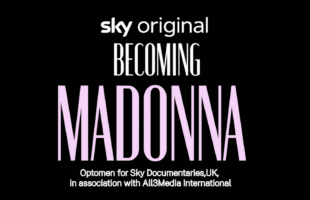For decades, TV has been regarded as an inferior storytelling medium to film. But the last 10 years have seen the barriers between film and television come crashing down, thanks to game-changing TV dramas including Mad Men, House of Cards, Breaking Bad, Homeland, Game of Thrones, Serangoon Road and True Detective. Companies that used to specialise in film have opened up TV divisions; actors who were only ever seen on the big screen have become living room favourites; writers and directors associated with cinema now lead double lives as TV showrunners; and stories that started life as blockbuster movies have found a new lease of life as returnable TV series.
Explaining how this came to pass, Tandem Communications’ President and Partner, Rola Bauer, says, “With the increase of subscriptions in premium pay-tv and SVOD, and their need to differentiate themselves from all other forms of television, HBO, Canal+, Showtime and now Netflix and Amazon Prime were motivated to reach for a more cinematic audience with their original programmes than free TV and basic cable. When they succeeded in getting more viewers and critical acclaim, their approach to storytelling started to influence basic cable and free TV. Many free-TV and basic cable networks now want to push the narrative envelope and make less formulaic television.” This new direction has proved appealing to actors and, by association, writers and directors.
Bauer adds, “Owing to the high cinematic quality now being achieved in television, actors are presented with an opportunity to work in productions with rich characters and multi-layered storylines. They can also portray a role more fully, taking the time to develop a character, when it is spread out over a season. Additionally, the talent realises that a whole generation is growing up with multiple devices who perceive little difference between entertainment in the cinema or on TV, computer, tablets or smartphones.”
Bauer, whose company belongs to leading European film studio StudioCanal, believes Tandem’s current slate is indicative of the way talent has responded to this new creative opportunity. She cites shows such as Spotless, a new one-hour drama for Canal+ Creation Original; Sex, Lies and Handwriting, a co-production with Lionsgate Television, currently in development for ABC in the U.S., Sat.1 Germany, TFI France and Bell Media Canada; and Crossing Lines, a cross-border crime series that has already sold to 180 countries. The latter stars William Fichtner (Elysium; Teenage Ninja Turtles) and has recurring appearances from screen legend Donald Sutherland.
Bauer has also witnessed a greater willingness among film talent to work in TV. “Right now, there’s an opportunity to take creative risks, to be cutting-edge and original,” she says. “At the same time, there is the opportunity to stand out. With social media trending more and more towards TV, scripted shows have become the currency of the water cooler. Any stigma around TV has long gone.”
According to her, one property that really captures this trend is Utopia. “It’s a U.K. drama from then Shine owned Kudos that is being adapted by David Fincher for HBO in the U.S,” she says. “Fincher, who made The Social Network and House of Cards, is the kind of executive who is equally comfortable in film or TV production.” She believes the current trend towards shorter run series is also encouraging film talent into TV because they are able to fit it around their other commitment, which isn’t the case when they are committed to long-running procedurals. Sonar Entertainment CEO Gene Stein echoes his peers when he says the drama arms race is being driven by networks seeking to differentiate themselves from their rivals. But he also believes that changes in the film industry are favouring the television.
“The movie market has polarised into large, epic, action movies and small independent films, with the great middle largely eliminated. So far actors and directors wanting to play complex characters or tell interesting intimate stories, TV is providing them with new opportunities to do that.”
He also argues that changes in commissioning patterns are encouraging film talent into TV -but he cites a different reason. “The growing trend towards commissioning full series is helping to attract talent; because it means actors and showrunners have a guarantee that they are going to be able to tell their story, instead of seeking it fails to go past a pilot.” Stein says Sonar’s slate of content last year is further evidence of the willingness of talent to move between film and television.
“We then had a straight-to-series order from MTV for Shannara. Based on the best-selling fantasy novels from Terry Brooks, the first two episodes were directed by Jonathan Liebesman. Then we had South of Hell, a thriller for WE TV, which saw Eli Roth (Hostel, Hemlock Grovel) direct the first episode. Additionally, we had Tom Hardy starring in Taboo.” Roma Khanna, former President of MGM’s Television Group and Digital also identifies a shift in the film business. Her previous organisation is doing at the high-end of the theatrical market with, among others, the James Bond franchise and The Hobbit series. She said, “The US$40 – US$50 million market is disappearing. From a TV point of view, the good news is that it seems to have been replaced by high-end cable drama series.”
Khanna cites the example of Fargo, an award-winning MGM-production series for cable network FX that stars Martin Freeman and Billy Bob Thornton. “To have talent like that working in TV is wonderful,” she added. “It’s contributing to the phenomenal standard of storytelling we’re seeing right now.” Fargo which has been sold internationally to broadcasters including Channel 4 U.K. and Canal+ Spain is not just interesting because of its talented cast. As a spin-off from the Coen Brothers movie of the same name, it is also part of the movie-TV cross-over trend. Other titles to have taken a similar path include MGM’s Teen Wolf, Sony Pictures Television’s (SPT) Hannibal and The Firm, Atlantique Productions’ Transporter and NBCUniversal’s About A Boy.
Explaining the rationale for this approach, Khanna says, “The most important fact is that iconic film titles like Fargo can act as a source of inspiration for storytelling. We would never go ahead with something that was simply a rehash of the film, but there’s a creative advantage in working with a universe that has such a powerful environment and attitude in place.” MGM’s team in the Asia-Pacific office are still distributing new theatrical releases across the region including The Magnificent Seven where a diverse group of outlaws and gunslingers band together to defend a community’s helpless citizens in the American west; Tomb Raider, starring Academy Award winner Alicia Vikander; Death Wish, starring Bruce Willis and directed by Eli Roth; Sherlock Gnomes, a coproduction with Paramount produced by Elton John’s Rocket Pictures; and the original romance Everything, Everything, based on Nicola Yoon’s best-selling novel of the same name.
Then, of course, there is the marketing advantage of working with a known brand, “A high-profile or iconic film has the inherent benefit of already being familiar and having a pre-existing audience,” Tandem’s Bauer says. “This can be a useful tool in being able to specifically market the series to the demographic, fans and social media sites where it has already proven appealing.” Olivier Bibas, Head of Lagardereowner Atlantique Productions, has played a key role in the reinvention of the TV drama business with series such as Borgia, Death in Paradise and Transporter. The Series. “There is a huge excitement around television at the moment because all these new networks and platforms are creating a place for high-quality, adult shows,” he says. “The feature-film market is going after a young audience, but series like Masters of Sex and Breaking Bad are for grown-ups.”
This is a key demographic point. One of the real game-changers in the television business is the fact that there is a huge open-minded audience of 30-year-old-plus people craving quality storytelling. The fact that many have re-centred their social lives around their homes has been a big opportunity for pay-TV and SVOD. “We’re seeing bolder, edgier, more complex show, because the likes of Netflix don’t just have to cater for the mainstream,” Bibas adds.
Explaining why Atlantique decided to back Transporter as a TV series, Bibas says, “It was a strong brand, but it also had a clear of concept that we liked. Having a simple, clear proposition is important when building a global brand.” So is he looking for more film-to-TV opportunities? “We are going to do it again – there are a couple of things we are looking at. But there aren’t many brands like Transporter. You can’t just take any film franchise and turn it into a TV series.”
One company that has benefited hugely from recent developments in TV drama is SPT. After raising the creative bar to extraordinary heights with Breaking Bad, it is now in the market with a number of hot properties, according to Chris Parnell, SPT’s SVP of drama development. “Outlander has been a very big show for us. But also have productions like Battle Creek (the new Vince Gilligan show) and Better Call Saul (a Breaking Bad spin-off).
There’s also Master of Sex, which has been greenlit for a second series on Showtime.” In terms of big name movie stars migrating to TV, SPT produced Damages with Glenn Close. “And now the same creative team is working with us on an unnamed 13- part series for Netflix,” he adds. Part of the reason for SPT’s success in the new environment is that it has a lot of creative autonomy. “Sony doesn’t have a U.S. network, so we don’t have to tick certain boxes like some of our peers at the studios. Because we aren’t aligned to channels, we can be very open to new ideas. I think that’s why we were able to come through with something like Outlander, which is very hard to categorise.”
For Parnell, one interesting outcome of the current market is the way shows move around different development pools until they find their most appropriate home. He cites Zombieland, passed over as a TV pilot before becoming a successful 2009 movie. It was subsequently piloted by Amazon in 2013. Then there is Powers, which has been with SPT since 2001. “Originally, it was developed and piloted for FX, but it didn’t match up. So now we have done a deal that will see it become the first original television series for PlayStation 4,” adds Parnell.
While much of the above is about the way in which channels are pursuing cinematic-quality drama, it is noticeable that pay-TV platform operators such as DirectTV, SKY and Canal+ are also investing heavily in original high-end content, either by commissioning shows, entering into co-production/presales or acquiring companies. Also active is Telefonica Studios, the content division of telecoms giant Telefonica. “Being a digital telco with a strong video strategy, setting up a production division (Telefonica Studios) was the next logical step,” says its CEO Axel Kuschevatzky.
“In some countries, like Spain and Argentina, we have to produce in order to fulfil legal obligations. In some other countries, there are tax breaks. Telefonica Studios integrates both scenarios (obligation and incentives) to create a whole new feature and TV series slate.” Echoing his peers, Kuschevatzky says that television has found a new level. However, he argues that there is still a strong market right theatrical product, “Serialised storytelling is becoming to this decade what independent filmmaking was to the nineties – a land with fresher rules. But theatrical is not dead by any means. We are producing around 12 films a year. In 2016, we will release a new theatrical feature directed by Alejandro Ameanbar who has produced titles such as The Others; The Sea Inside. Others upcoming titles include the apocalyptic adventure Welcome To Harmony, the animated feature Capture The Flag and the drama La Patota, coproduced by Walter Salles.”








